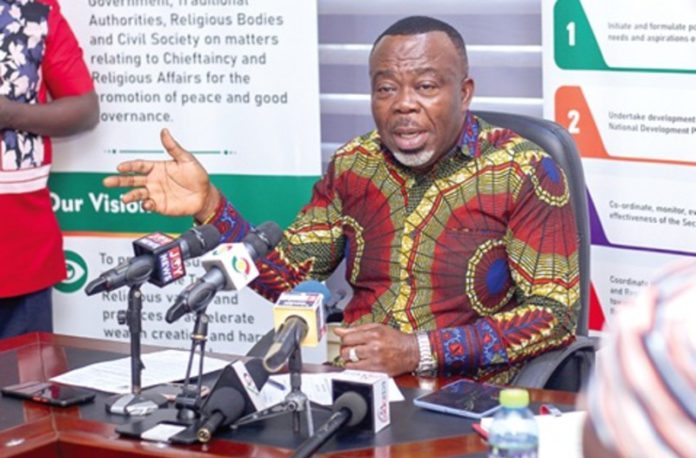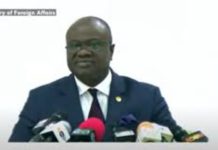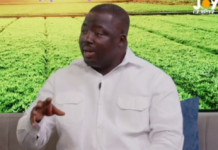
The Ministry of Chieftaincy and Religious Affairs has put together a draft proposed policy for directions on religion to protect the rights and freedoms of individuals regardless of their beliefs or non-beliefs.
Named: the “National Policy on Religion,” it aims to address the challenges and opportunities that arise from the coexistence of different faiths and beliefs in the country.
It will provide a framework for the protection and promotion of the rights and freedoms of all religious groups, as well as the prevention and resolution of conflicts that may arise from religious differences.
Already, 16 regional stakeholder consultations have been scheduled to commence in the next two weeks as part of the process of reviewing the policy.
Under the consultation, the country has been grouped into four zones.
Zone One, comprises the Oti, Volta, Eastern and Greater Accra regions, with Zone Two made up of the Western, Western-North and the Central regions.
The Ashanti, Ahafo, Bono and Bono East regions make up Zone Three while Zone Four has Upper East, North East, Northern, Savanna and Upper West regions.
Stakeholder consultation
At the press conference in Accra yesterday, the sector Minister, Stephen Asamoah Boateng, said the consultations, made possible through technical and financial support of the United Nations Population Fund Ghana Country Office, were crucial steps in the development of a comprehensive and inclusive policy that would promote religious harmony, diversity and tolerance in our country.
He said the consultation would be conducted in a participatory, transparent and respectful manner.
He, therefore, encouraged everyone to share their perspectives and experiences and also engage in constructive dialogue and mutual understanding, while respecting the diversity of opinions and beliefs that existed.
Before the end of this year, the minister gave an assurance that the policy would be presented to cabinet for approval.
National Policy on Religion
The government legal framework for management of religious affairs is underpinned by Article 21(1)(c) of the 1992 Constitution which says “all persons shall have the right to freedom to practise any religion and to manifest such practice.”
Under the law, all religious bodies are independent and are required to register their entities at the Registrar-General’s Department.
Mr Boateng noted that currently, there was no established governmental bodies that had oversight responsibility regarding religious activities other than his ministry.
“Since assuming office in April, this year, I have had to respond to various issues on religious activities and beliefs in the country.
I have also had opportunities to interact with leaders of religious bodies and civil societies in finding a harmonious coexistence among the citizenry.
“Part of the discussions have centred on how the religious bodies would be encouraged to put in structures to self-manage their front.
“It is in this regard that my ministry has been working with key stakeholders to put together a draft proposed government policy for direction of religion designed to protect the rights and freedoms of all citizens, regardless of their beliefs or non-beliefs,” Mr Boateng said.
Religious leaders
The Country Representative of the UNFPA, Dr Wilfred Ochan, also noted that most people all over the world looked up to religious leaders for guidance, direction and inspiration, especially when they were venturing into new and familiar areas.
He said religious leaders were believed to have the charisma and ability to lead their followers to step into the unknown with ease and were, therefore, an essential social support for many people in their everyday life.
Faith-based organisations, he said, had unique relationships with their followers in the society and had a powerful role in shaping attitudes, opinions and behaviours.
Dr Ochan said the UNFPA recognised those unique roles of religious leaders and it was for that reason that it was partnering the ministry to ensure that together, they delivered on their collective mandate.
ALSO READ:






